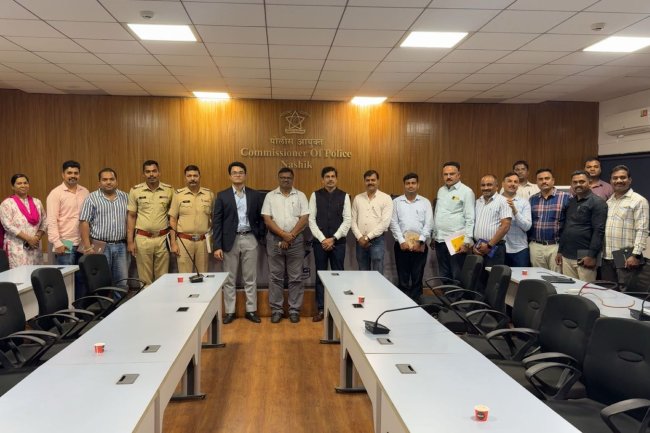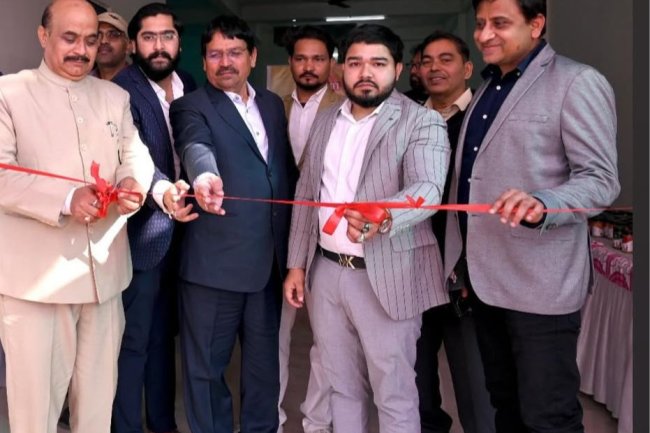Dr. Megha Phansalkar: Weaving a New Future for India’s Rural Artisans

For centuries, India’s rural artisans have carried forward traditions of weaving, painting, and handicrafts that define the country’s cultural identity. Yet in modern markets, these same artisans often find themselves invisible—undercut by mass production, disconnected from urban consumers, and at the mercy of exploitative middlemen. Dr. Megha Phansalkar, founder of Tisser Artisan Trust and Tisser Rural Handicrafts, has dedicated her career to changing this equation, blending development expertise with social entrepreneurship to create sustainable livelihoods for artisans while preserving India’s craft heritage.
An urban and regional planner by training, Dr. Phansalkar brings more than two decades of experience in the development sector. Her work has spanned critical areas like water supply, sanitation, and livelihood development, often with a focus on community-led solutions. She has also collaborated with global institutions, including the World Bank, where she contributed to the National Rural Livelihood Mission (NRLM). It was during these assignments, while working closely with rural communities, that she noticed a glaring paradox: despite their extraordinary skills and cultural legacies, artisans were struggling to survive economically.
“Artisans had talent, tradition, and stories worth sharing,” she recalls, “but what they lacked was access—to markets, to design support, and to fair prices.” This observation became the seed for Tisser, which she formally established in 2015 as a social venture and not-for-profit trust.
Tisser’s mission is straightforward yet ambitious: to uplift rural artisans by modernizing their crafts and connecting them to wider, often global, markets. What sets it apart is its holistic approach. The initiative does not stop at purchasing products from artisans; instead, it works with them end-to-end—enhancing product design, diversifying portfolios, offering marketing support, and embedding technology into the value chain.
Dr. Phansalkar has championed the use of IT-enabled innovations and blockchain technology in handicrafts—a rarity in the sector. By leveraging blockchain, Tisser ensures supply chain transparency, allowing consumers to trace products back to the artisan who created them. This not only validates authenticity but also guarantees fair profit-sharing, eliminating the traditional dependence on middlemen. At the same time, social media storytelling highlights the artisans themselves, giving buyers a deeper connection with the makers behind the crafts.
The impact has been tangible and far-reaching. Tisser today works with more than 10,000 artisans across over 1,000 rural clusters in 18 states of India, covering nearly 200 traditional art forms. By aligning age-old skills with contemporary market demands, the organisation has revitalized crafts that were once in danger of fading. For artisans, particularly women, the initiative has created stable livelihoods and pathways to entrepreneurship, turning skills passed down through generations into sustainable sources of income.
In many ways, Dr. Phansalkar represents a new breed of social entrepreneur—one who stands at the intersection of grassroots development, innovation, and market economics. She sees artisans not as beneficiaries of charity but as entrepreneurs in their own right, capable of competing in global markets if given the right tools and opportunities.
“Empowerment comes when artisans are not just producers, but partners in the value chain,” she emphasizes. That philosophy is embedded in Tisser’s model of shared responsibility, skill development, and technology-driven transparency.
As the demand for ethical, sustainable, and handmade products grows worldwide, Dr. Phansalkar’s vision positions Tisser as both a custodian of India’s heritage and a driver of inclusive growth. In weaving together tradition with innovation, she has ensured that the hands that preserve India’s craft legacy can also secure its economic future.
What's Your Reaction?





















